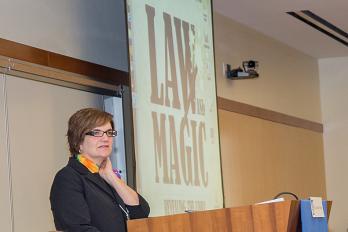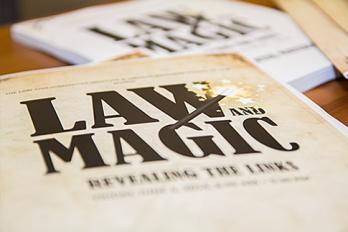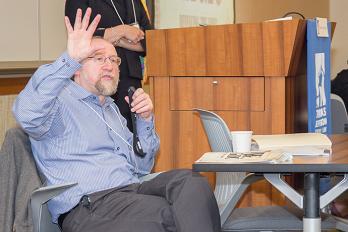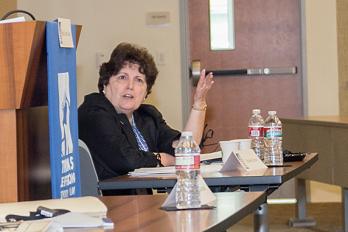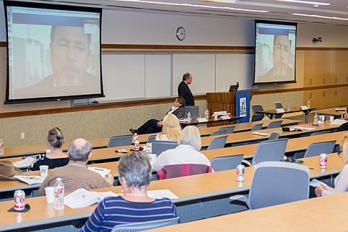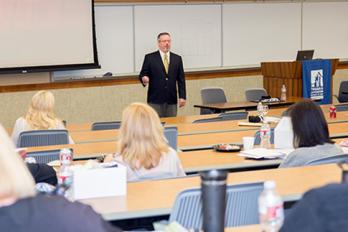Successful Law and Magic Conference
June 10, 2014
By Lilia Rodriquez (2L)
The Law and Magic conference, held on Friday, June 6, focused on linking magic and the legal system through a collaboration between The Law and Humanities Institute and Thomas Jefferson School of Law. This event brought together panelists from across the country and abroad to illustrate the historical and present day dynamics between law and magic.
“It was a great conference,” said conference Chair and Discussant Professor Julie Cromer Young. “Overall, it presented something to interest everyone in the audience. If you are interested in constitutional or criminal law, it had that. If you are interested in U.S. history, it had that. If you really wanted to see a magical performance, it had that, too. That’s the great thing about Law and Humanities conferences – they aren’t strictly for legal scholars.”
Morning panelist Christine Corcos, Richard C. Cadwallader Associate Professor of Law and Women’s and Gender Studies Associate Professor of Law at Louisiana State University Law Center, led the discussion through an examination of the roots and evolution of ordinances banning and later regulating “crafty sciences,” such as fortunetelling, clairvoyance, tea leaf and coffee readings. Corcos further elucidated the dual impact of the First Amendment and the Spiritualist Movement on modern statutes. Adding another dimension to the discussion, panelist Paul Finkelman’s presentation drew the connection between the end of the Salem Witch Trials and the emergence of the rules of evidence.
The afternoon panels centered around more easily anticipated legal topics such as the protections that apply to a magician’s act both in the U.S. and abroad, as well as the significance of magic in the form of illusion and misdirection in the trial setting. “There was something for everybody in this conference because it attacked the subject matter from a lot of sides,” said Professor Cromer Young. Indeed, the conference included discussions on literature, such as the law in the Harry Potter series, and magical demonstrations in the form of mind-reading by corporate entertainer Curt Frye and magical illusions by French Professor Dr. Guilham Julia, who addressed intellectual property law and magicians in France.
“Magic is an umbrella term for so many different things it was interesting to see how the law really has a tangible impact on this seemingly intangible concept,” said TJSL student Kathy Rabii (1L). “It also proved a great opportunity to meet fellow students and network for the perfect internship.”
“It is important to show that there is something that can be an intense interest of yours that does not seem inherently legal but there is an aspect the law can influence, no matter what the topic,” said Professor Cromer Young. “It’s great to come to a conference where you get more ideas. You merge two ideas into a third idea for a paper or an article because it shifts your perception; which is cool, because that’s what magic does,” concluded panelist Jennifer Hagen.
“Often there is the misconception that the law is reserved for dry analysis and interpretation,” Professor Cromer Young. “What people often don’t realize is that any topic necessarily has a legal element. It is possible to combine your legal career with your hobby or interest, and the combination usually makes both more fulfilling.”
